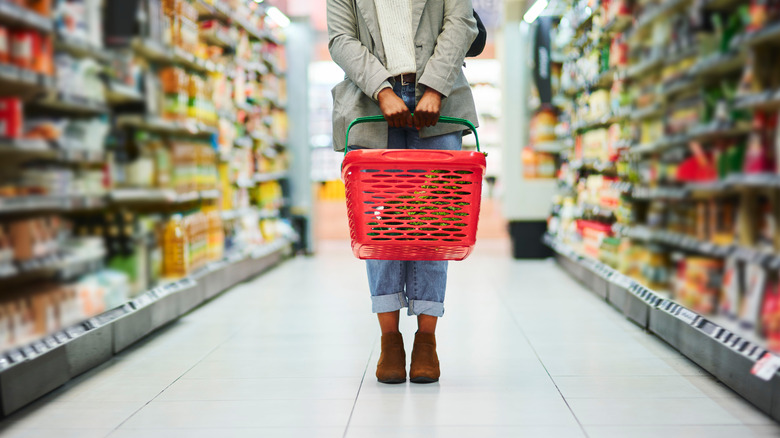White House Announces Grocery Inflation Is Slowing Down
Good news, world-weary foodies: It looks like, slowly but surely, grocery inflation may finally be slowing down. The White House Council of Economic Advisors (CEA) released the latest data on June 7, encompassing a three-month span to illustrate a more dimensional understanding of the trend. Shoppers won't soon forget July 2022, which saw grocery inflation ("food-at-home" inflation) at a whopping 15.7%. Nearly a year later, it finally came down to 1.5% in March. Now, headline inflation (the raw total inflation figure) sits at 3.2%.
The White House acknowledges it's been a tough year, listing "pandemic-induced shifts in food demand from restaurants to groceries, global supply chain bottlenecks, and unforeseen supply shocks like avian flu, the war in Ukraine, and poor weather" as enduring adversaries to consumer wallets. Looking forward, the CEA attributes the cooling to two primary factors: "Eggflation" is finally beginning to trickle off, and produce (namely fresh fruit) is gradually becoming less expensive, as well. Per the report, egg prices dropped by 18% from January to April 2023, which is still 40% higher than January 2022 prices, but it's a start.
Considering March was the first time that grocery prices have cooled since September 2020, the fact that they further decreased in April is pretty big news. Grain-based products like cereal and bread also saw a measurable decrease in price over the three-month period ending in April, as did the dairy sector.
What the reality might look like for consumers
The White House's prediction is optimistic ... we guess. Per the announcement, "Looking ahead, the CEA staff expect grocery inflation to continue improving alongside headline inflation but remain elevated relative to its pre-pandemic levels through the rest of 2023." Not an ideal forecast, but it's a halt to some of the doom and gloom to which consumers have become so unwittingly accustomed over the past few years.
It remains unclear exactly how the U.S. will execute the radical economic reform its consumers so desperately need. The U.K. government wants to enact price caps to help curb inflation. France has already implemented a similar emergency policy. Meanwhile, multi-national food manufacturing giants Kellogg, PepsiCo, and Nestlé all reported revenue growth in Q1 2023 even as sales volume went down — in other words, even though folks are spending more money, they're coming home with less food. Plus, the recent SNAP qualification restrictions mean hundreds of thousands of Americans are flocking to food banks and facing food insecurity in a very real way.
Whether food inflation will return to its pre-pandemic levels remains to be seen. Will it simply stop rising and stay static? Consumers wait with eager anticipation to find out what they'll be able to eat for dinner in the months to come. The White House's May Consumer Price Index report is scheduled for publication sometime next week.

